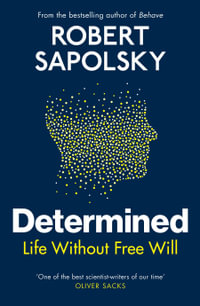Aristotelian ethics, Kantian ethics, and utilitarian ethics have been for some time now the main options within (Western) ethics, and the central task over the years has been to determine which of the three is right. Is this book yet another attempt to fulfill this same old task? Not at all. Sterba argues that in their ongoing attempts to put forward for general consideration the most morally defensible versions of their views, advocates of Aristotelian ethics, Kantian ethics, and utilitarian ethics have jettisoned much of what had originally distinguished their theories from each other. The upshot is that, in their current most morally defensible formulations, Aristotelian ethics, Kantian ethics, and utilitarian ethics no longer differ in the practical requirements they endorse. This makes the resolution of moral problems far easier. Sterba drives home his claims by taking up some of the most challenging and important moral problems of our time--sexual harassment, affirmative
action, and international terrorism and Iraqi War II. This book is an ideal supplementary text for courses in introductory ethics, history of ethics, contemporary moral problems, and various applied ethics courses. Featuring a lucid writing style and coverage of current moral issues, it is also captivating reading for general readers.
Industry Reviews
Advance Praise: "This is a book that initiates an important debate by challenging the beliefs of moral philosophers about the implications of their theoretical disagreements. Much of importance turns on Sterba's provocative thesis that he has understood our views a great deal better than we have understood them ourselves, whether we are Aristotelians, Kantians, or utilitarians. It is a book not only for philosophers, but also for students of conflict
resolution. Sterba's enterprise is one for which we can all be grateful, whatever our final verdict on it."--Alasdair MacIntyre, University of Notre Dame
Advance Praise: "This is a book that initiates an important debate by challenging the beliefs of moral philosophers about the implications of their theoretical disagreements. Much of importance turns on Sterba's provocative thesis that he has understood our views a great deal better than we have understood them ourselves, whether we are Aristotelians, Kantians, or utilitarians. It is a book not only for philosophers, but also for students of conflict
resolution. Sterba's enterprise is one for which we can all be grateful, whatever our final verdict on it."--Alasdair MacIntyre, University of Notre Dame
"Using concrete detail in application to actual cases, James Sterba gives all of us reason to reflect on the question of how far our differences in moral theory prevent us from seeing how we might come together on important matters of moral practice."-Peter Railton, University of Michigan

























